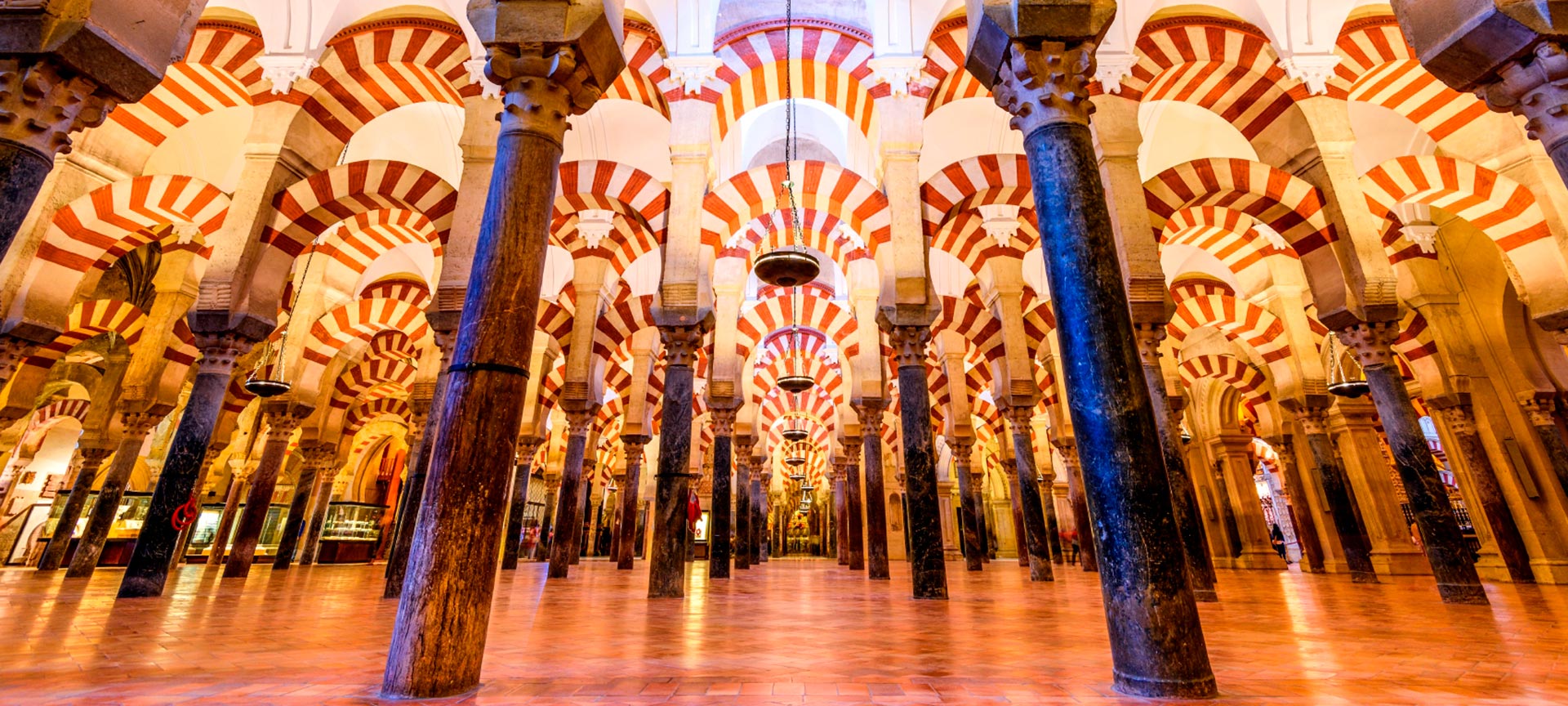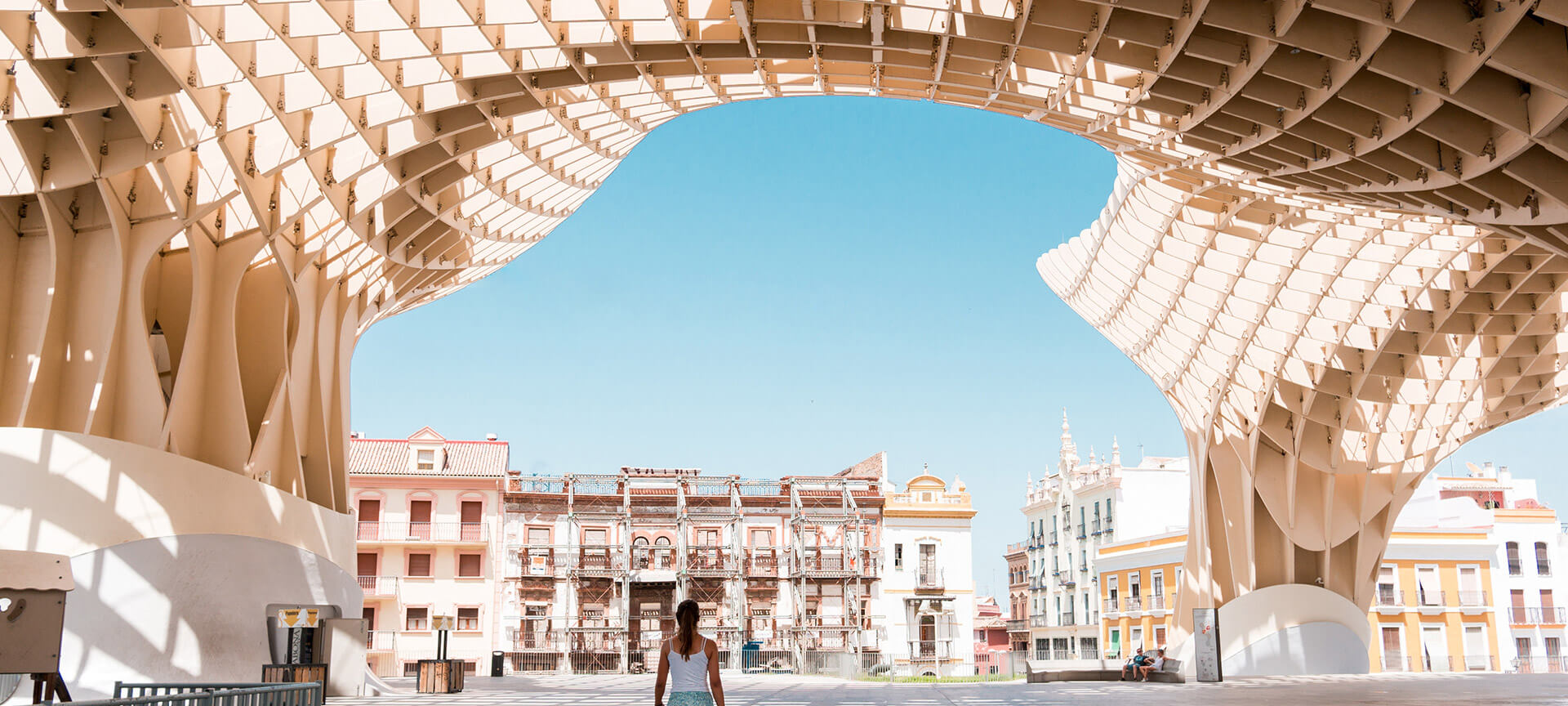
Four art centres with cutting-edge architecture in Andalusia
Think of a museum. What do you imagine? Maybe a place full of works of art? Now think of Andalusia. What images pop into your mind? Impressive heritage buildings - cathedrals, the Alhambra in Granada, the Great Mosque of Cordoba? But there’s another Andalusia of daring cutting-edge design. Come with us to four spaces which break the mould. They are museums where the first work of art you encounter is the building itself. Their striking architecture complements and contrasts with the venerable heritage of the region. They represent the Andalusia of the 21st century.
Debe activar Javascript para poder utilizar este servicio
-
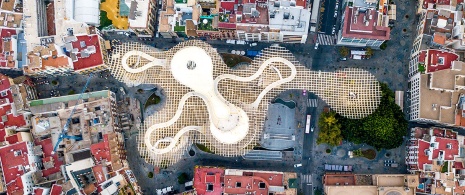
Setas de Sevilla
You’ll see immediately why it’s called Las Setas - the Mushrooms. The traditional Plaza de la Encarnación is home to the largest wooden structure in the world, designed by Jürgen Mayer. It is a wide space where you can find an archaeology museum, restaurants and a nearly 30-metre-high viewing point. Great views guaranteed.
-
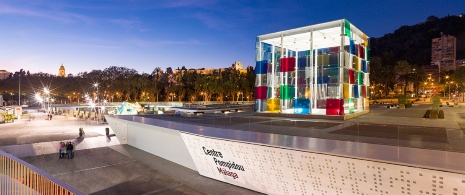
Pompidou Centre in Malaga
It's easy to see the cultural revolution that Malaga has undergone by simply walking around its streets and noting the new museums. These include the Pompidou Centre, whose famous colourful Cube by Daniel Buren catches everyone's attention. Inside you will find select works of art from the 20th and 21st centuries.
-
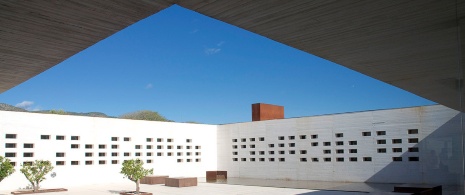
Medina Azahara visitors’ centre, Córdoba
A minimalist design, clean colours like white and red, and an interior structure reminiscent of Islamic city planning, are some of the characteristics of this modern building, complementing the stunning archaeological site of what was once the “shining city”, the capital of the Caliphate. The architects included another nod to the heritage site: much of the building is underground, so the visitor discovers Medina Azahara like the archaeologists did, uncovering what was buried.
-
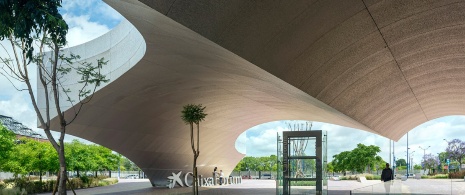
Caixaforum Seville
The first thing to surprise the visitor is its location at the foot of the city’s tallest tower. The centre itself appears simple, but this innovative building has won international recognition for its adaptation to the space and its use of natural light. Like a plant, it spreads underground, coming to the surface to flower.
You can find more examples in our leaflet of contemporary architecture in Spain.
Travel plans for inspiring you






